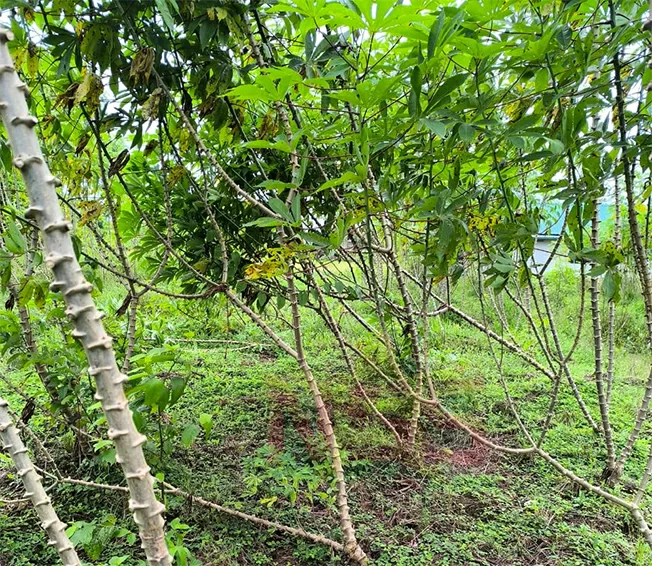The Directorate of Agricultural Development Inland (DAOB), under the Ministry of Regional Development, has reported new cases of cassava diseases in several agricultural regions, including Marowijne, Brokopondo, and Sipaliwini. The diseases identified include Frog Skin Disease and a suspected new strain known as Witches’ Broom. These outbreaks are particularly concerning as cassava is a staple food and a vital income source for many farmers in both inland and coastal areas. Similar issues were reported last October, and neighboring regions like French Guiana and Brazilian states Amapá and Pará have also faced emergencies due to these diseases. To combat the spread, DAOB has initiated a collaborative effort involving the Ministry of Agriculture, Livestock, and Fisheries, CELOS, local cooperatives, farmer organizations, and international partners. The national strategy focuses on early detection, laboratory research, farmer surveys, education on disease prevention, and the protection of healthy cultivation zones. The approach aligns with the One Health framework, emphasizing the interconnectedness of human, animal, and environmental health. DAOB urges farmers and organizations to participate in ongoing research and surveys to develop a targeted action plan aimed at enhancing the resilience and sustainability of the cassava sector. The project is coordinated by Deputy Director Cyrano Asoiti under the leadership of Director Hermien Pavion. Suriname aims to mitigate the impact of plant diseases and secure agricultural production through this unified effort.
